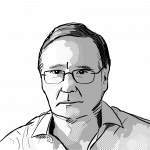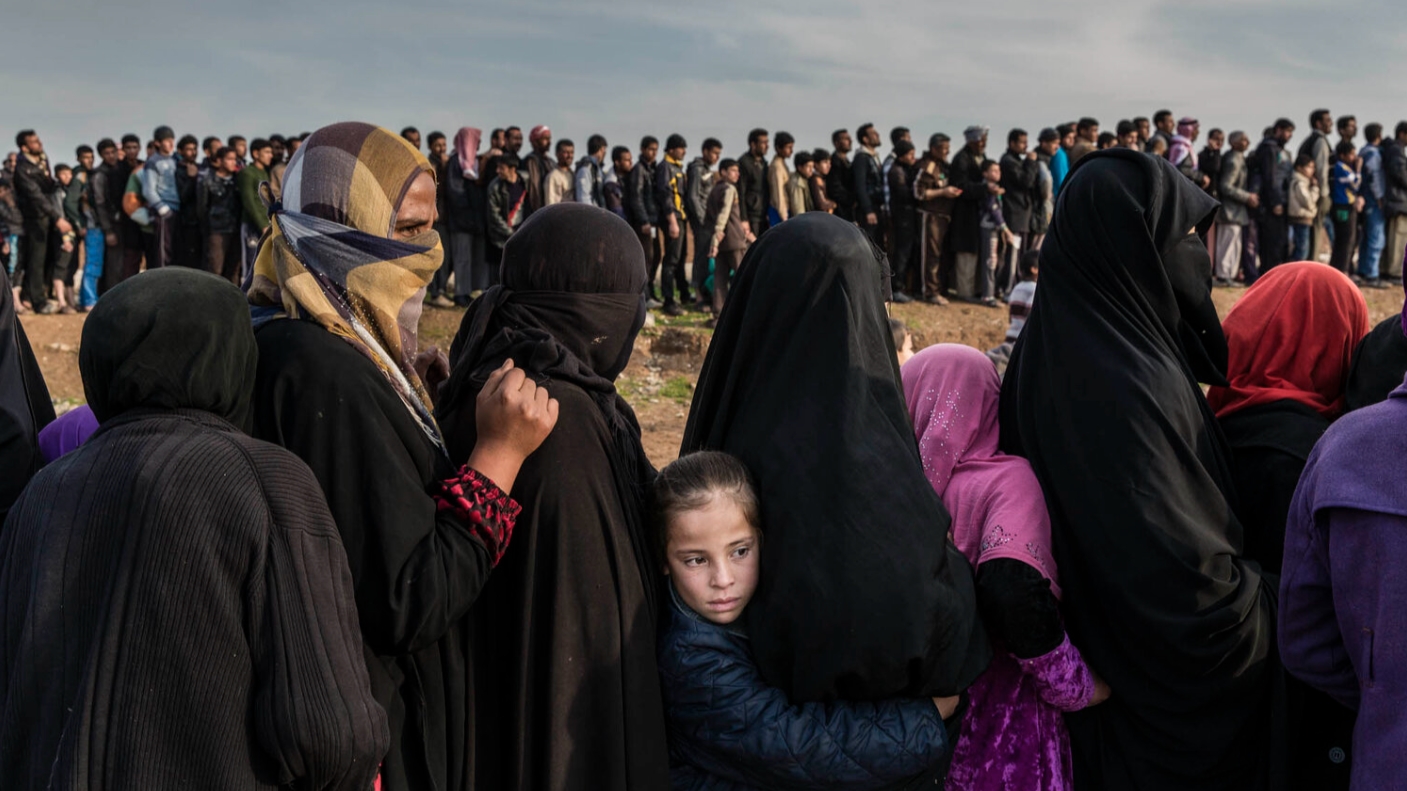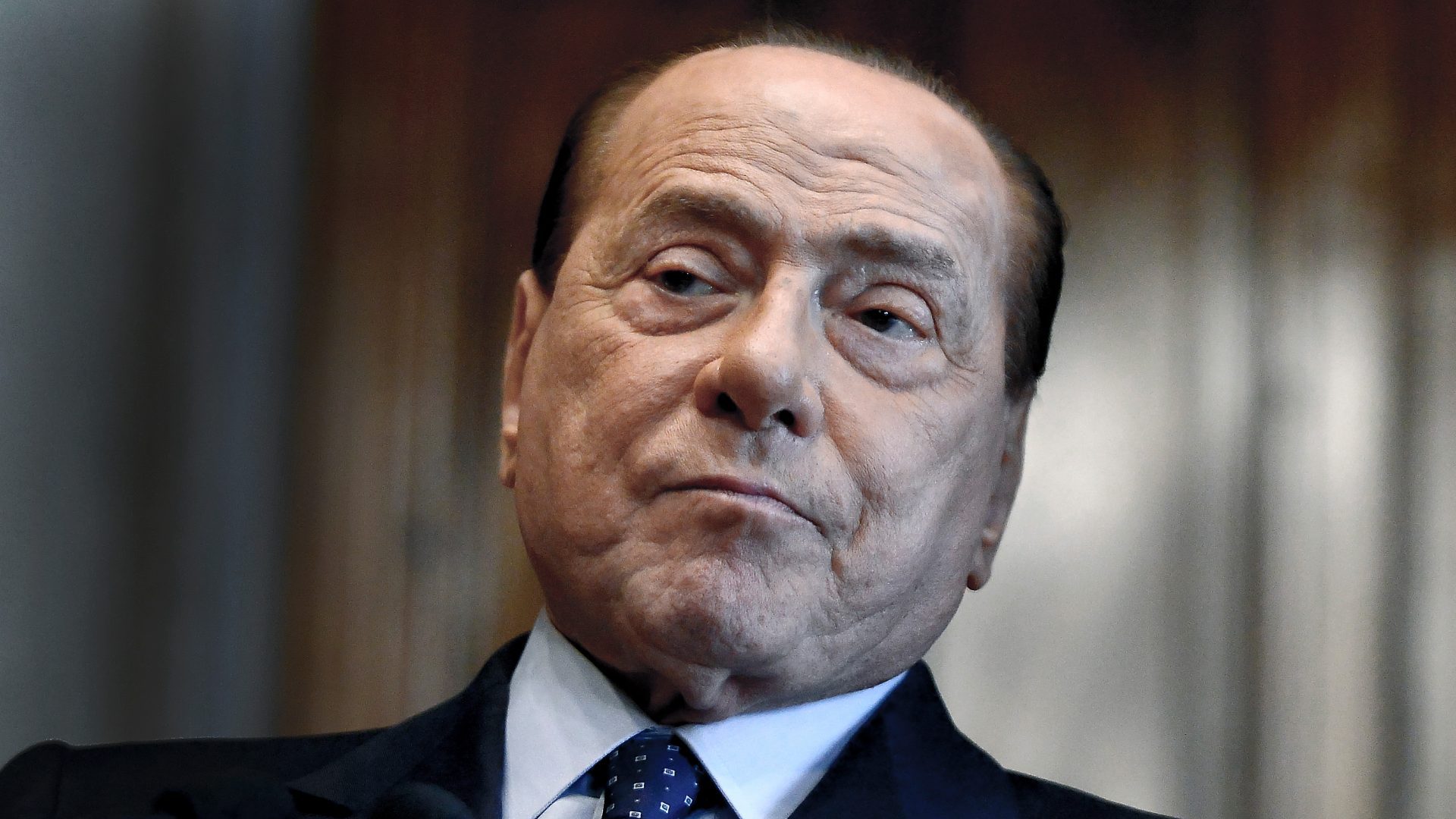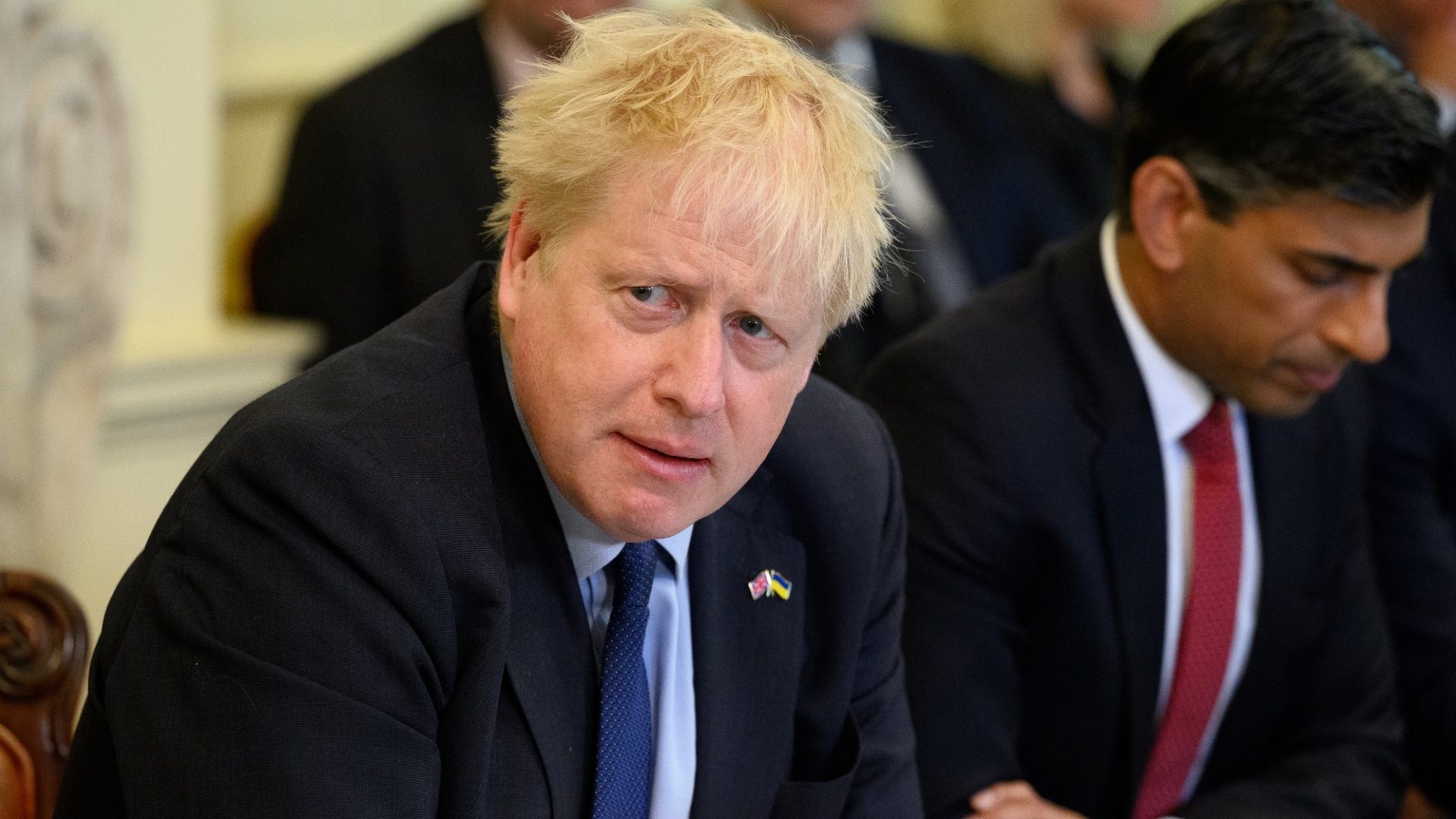A young fighter, his arm in a sling, traces of blood on his side, spoons food into the mouth of a bedridden, heavily bandaged, comrade. He cannot help himself because his own wounds are too severe.
A tender moment between two soldiers who were hit in the same rocket blast when fighting for the Kurdish Arab Alliance against Isis in Syria. Tough guys, who no doubt had been inflicting similar wounds on their enemies, but now united in pain and the desire to care for each other.
They were photographed by Pulitzer Prize contender Ivor Prickett, whose work displays a rare instinct for the stories and people behind the headlines and the havoc of war, reflecting the stoicism, the weary suffering and their indomitability.
Fifty images from Prickett’s considerable output are on show in No Home From War: Tales of Survival and Loss (until July 30) at the Collezione Maramotti, in the Italian city of Reggio Emilia, which follows his career from his early professional days in Croatia in 2006 to Ukraine in 2022 and includes the plight of Syrian refugees and the savage encounters in the war against Isis in Syria and Iraq.
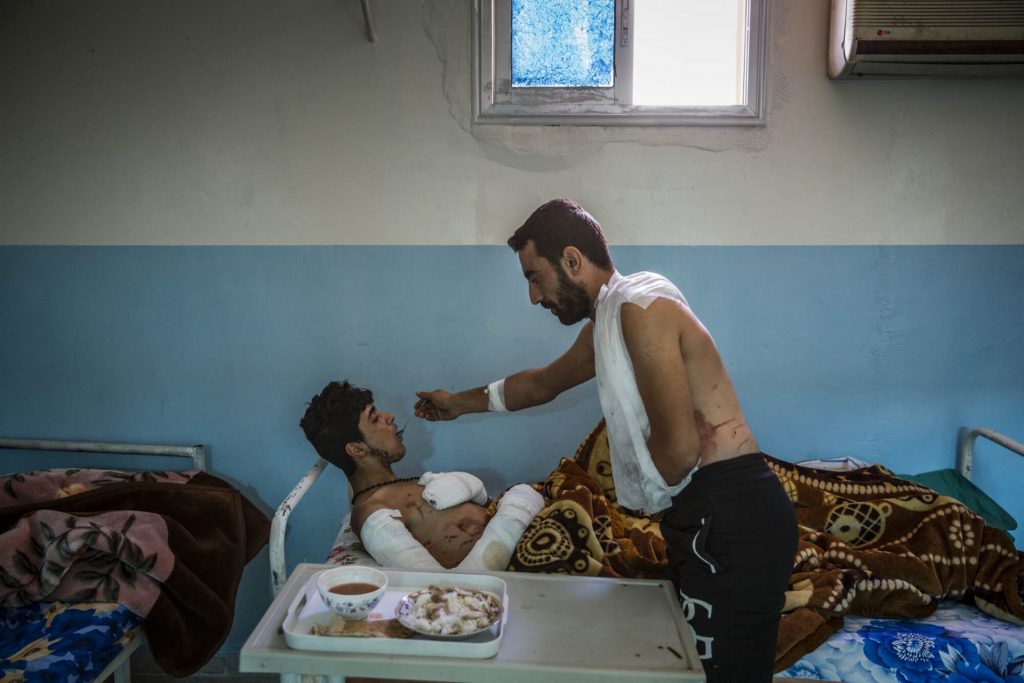
Prickett recalls the scene with the soldiers: “It was one of those moments that I look for in the context of war, where you see these incredible acts of humanity, even though all sorts of inhumanity and deprivation are going on. These guys have probably done really ‘difficult’ things in that time but in this moment, they soften and they become human again.”
This instinct to find the humanity in the brutal world in which he has immersed himself can be witnessed in the photographs of Croatian Serbs – ordinary folk having a shave, making a drink, bathing a baby in a kitchen bowl, chopping wood – who were still scarred by the conflict that tore the Balkans apart in the 1990s. Even though hostilities had ended 10 to 15 years before, many were still struggling to return to their homes in Croatia.
“It was my kind of proving ground,” says Prickett, who has been based in the Middle East since 2009.
“The images speak to the devastating effects of war and the huge humanitarian and social issues even more than the immediate effects. That’s why you don’t need necessarily to show the act of violence itself. It can be suggested in so many other ways.”
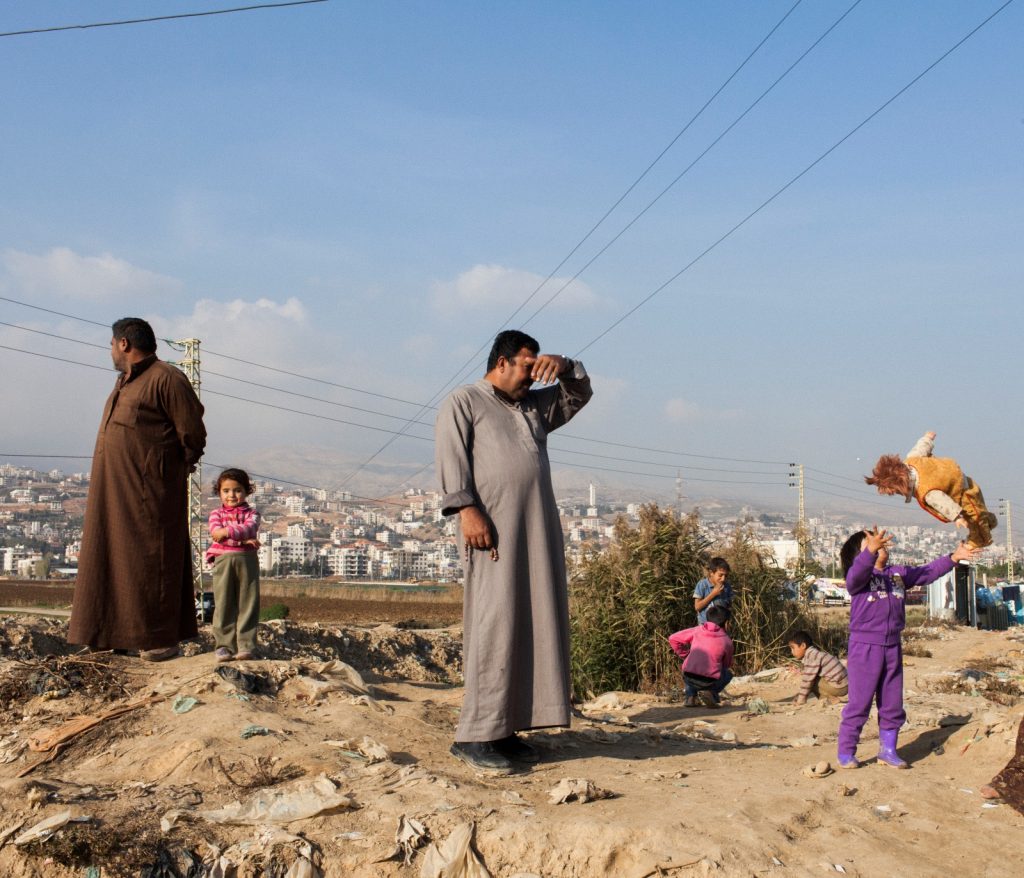
To take one image: an 80-year-old woman who was forced to flee her home when the conflict flared is still living in Serbia as a refugee. She is in a bare room, a few clothes are strung out on a washing line across one wall, possessions are in plastic buckets and bags. She fixes the camera with melancholy intensity, huddled on a bed against the cold, despite a blazing electric fire.
It is a pitiable scene, yet she was one of the many thousands who had lived though war and did not – could not – return to a homeland ravaged by violence. After all, where was home, what was home? Instead, she was going to live out the rest of her days in this small room.
The intimacy of the image is typical of Prickett’s work. He has photographed desolate acres of ruins, torn-apart buildings and suffering on a terrible scale, but every bit as eloquent is the exhausted face of a Syrian refugee seen through a bus window, a sleeping soldier, his gun propped up against a wall, women in Ukraine on their knees, praying by the roadside.
Similarly, in Ukraine, he photographed a huge breach blown into a block of flats, but just as powerful is the hole blasted in the wall of a home, framing a room where a family once gathered. Maybe more so. A big comfortable sofa in what was a private domestic space is covered in debris and dust, the wallpaper is in tatters. That room, that sofa, could be anybody’s and everybody’s.

There is something quiet, almost reflective, about many of his photographs. Not so the mother screaming in anguish, the blood of her son hit in a mortar attack in Mosul, Iraq, spilled in a pool on her doorstep.
“It almost looks like she’s shouting at me,” says Prickett. “But she was more shouting at the world and shouting at the whole situation.”
In poignant contrast, Nadhira Rasoul, simply sitting on a plastic chair, waiting and watching as an excavator digs through the ruins of her home in Mosul’s Old City sending swirls of dust over her, dumping mounds of stone and wreckage from her house beside her. Underneath the rubble, the bodies of her sister and niece, who were killed by an airstrike.
She did not move until the bodies were eventually found.
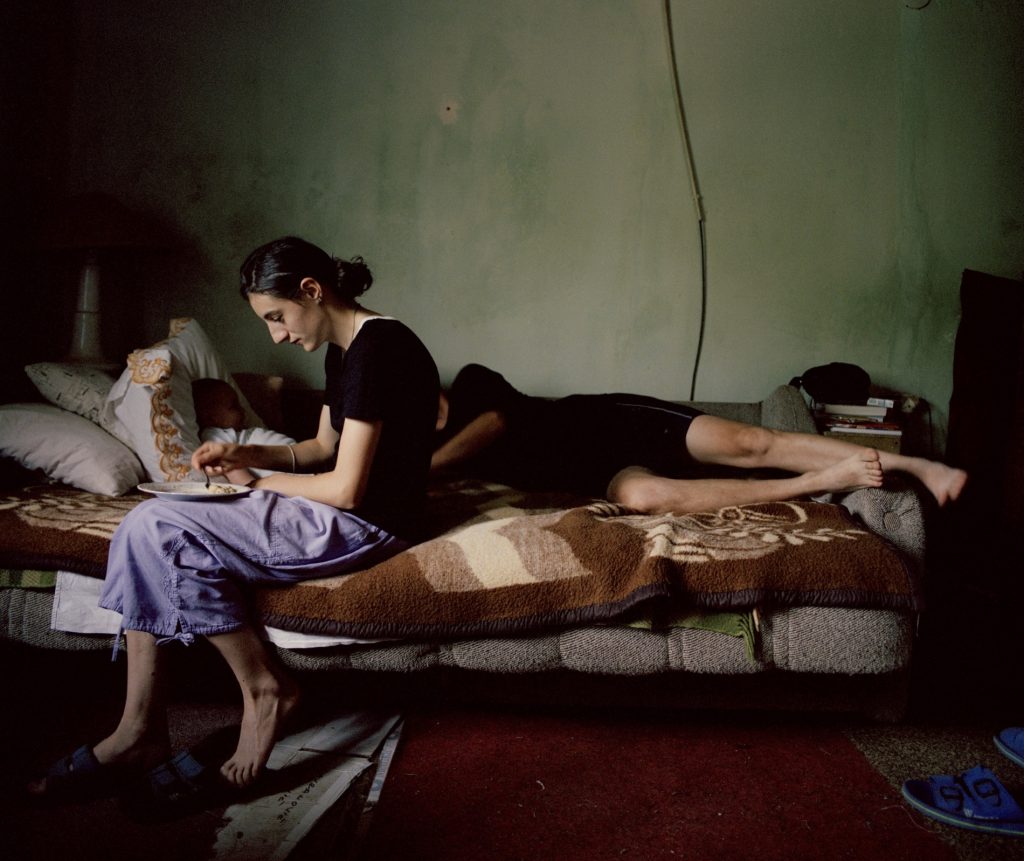
“Her defiance was one of the most heartbreaking and inspiring things I have ever seen,” says Prickett. “It seemed to speak volumes about the futility of war, but it was also a testament to the strength people have in this fractured region.
“In terms of photography it was kind of a culmination of everything that I’ve been working on. Everything coming to fruition.”

